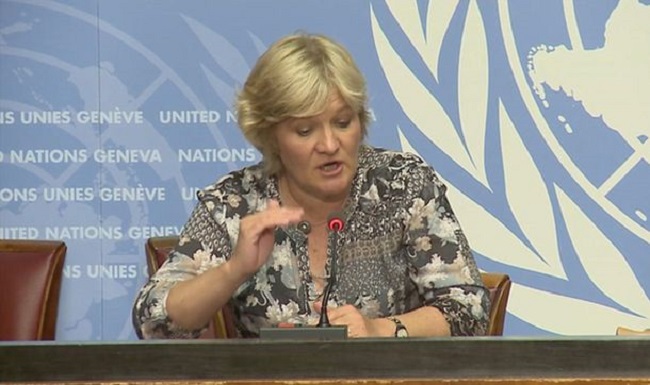Global temperature records were broken again last April, in a straight twelve-month streak, according to the World Meteorological Organisation (WMO).
Clare Nullis, spokesperson for the World Meteorological Organisation (WMO) told journalists in Geneva “the heat that we saw in 2015 hit the headlines at the time. We were alarmed about it. The heat that we are seeing in 2016 makes 2015 pale by comparison.”
Nullis explained the two major contributing factors were at work, “El Nino which has been very powerful, it is now fading fast, we think it will be replaced by La Nina which has a cooling influence. But the main driving force behind the unprecedented warmth is really global warming, it is climate change from human emissions.”
According to the US National Oceanic and Atmospheric Administration (NOAA) the combined average temperature over global land and ocean surfaces for April 2016 was 1,10° Celsius above the 20th century average of 13,7 °C. This is the highest temperature departure for April since global recordings began in 1880.
Clare Nullis said that “April set new records for record high temperature on land and the ocean. This is the 12th straight month that we have seen temperatures records broken. What is particularly concerning is the margin in which these records are being broken, they are not being broken, they are smashed and on a fairly consistent basis. “
Human activity has increased the direct warming effect of CO2 in the atmosphere by 50 percent above pre-industrial levels during the past 25 years, according to NOAA’s 10th Annual Greenhouse Gas Index.
WMO’s spokesperson informed about another extreme weather development. “We saw the lowest snow coverage extent in the northern hemisphere this winter. This is significant obviously in terms of draught, in terms of the impact on wild fires, there has been quite a few reports that there has been very bad wild fires that we are seeing in Canada, one of the contributing factors to this is in fact the low snow pack.”
Clare Nullis resumed that “our message once again is, that we really do need to act urgently to implement the Paris Climate Change agreement and take measures to reduce greenhouse gas emissions.”


